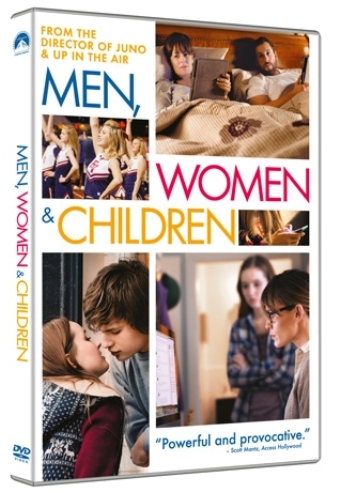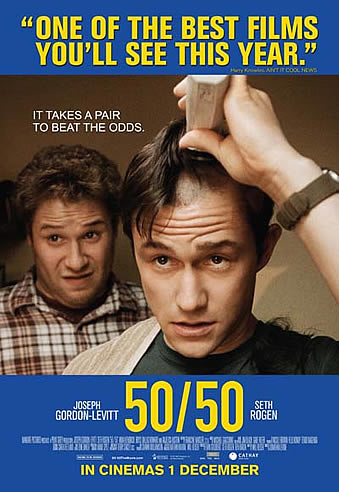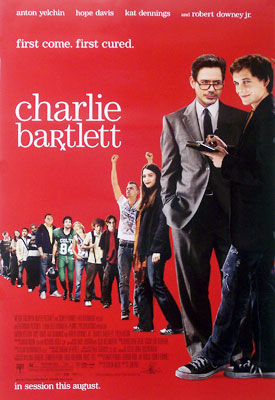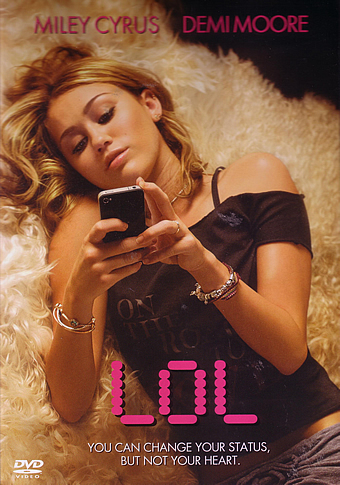ME AND EARL AND THE DYING GIRL (2015)
Genre: Drama
Director: Alfonso Gomez-Rejon
Cast: Thomas Mann, Olivia Cook, R.J. Cyler with Nick Offerman, Molly Shannon, Jon Bernthal, Connie Britton
Runtime: 1 hr 45 mins
Rating: PG13 (Some Coarse Language & Sexual References)
Released By: 20th Century Fox
Official Website:
Opening Day: 3 September 2015
Synopsis: Winner of the Grand Jury Prize and the Audience Award at the 2015 Sundance Film Festival, ME AND EARL AND THE DYING GIRL is a uniquely funny and moving story about Greg, a high school senior who avoids deep human relationships as a way to safely navigate the social mine field that is teenage life. In fact he describes his best friend Earl, with whom he makes bizarre short films, as being ‘more like a co-worker’. But when Greg’s mom insists he spends time with Rachel – a girl in his class who has just been diagnosed with cancer- Greg discovers just how powerful and important true friendship can be.
Movie Review:
As its title suggests, ‘Me and Earl and the Dying Girl’ is by-and-large a three-hander featuring a socially awkward teenager named Greg (Thomas Mann), his only friend named Earl (RJ Cyler) whom he calls a ‘co-worker’, and a girl named Rachel (Olivia Cooke) whom he befriends just after she is diagnosed with Stage 4 leukaemia. Greg is also the narrator of his own real-life story, which we learn from the start that he is writing into a manuscript – hence the chapter-titles such as ‘The Part Where I Meet a Dying Girl’ or ‘Day One of Doomed Friendship’ – while assuring us that it is not a romance and we should not expect the usual clichés.
Despite that assurance, Jesse Andrews, who penned the screenplay based upon his raunchier 2012 YA best-seller, largely sticks with convention established by films of the terminal teen melodrama (think: ‘The Fault in Our Stars’) and the bittersweet coming-of-age story. Greg is that nerd who struggles to fit in socially, whose way of coping is to establish superficial low-key friendships with all the different cliques in school. Though at first they have nothing to say to each other, Rachel grows to respond to Greg’s offbeat sense of humour and the couple develop a deep affection for each other (even if the ‘L’ word isn’t explicitly mentioned). And last but not least, even though Greg tries to convince us several times otherwise, Rachel does indeed succumb to her disease at the end.
Perhaps to compensate for that nagging sense of familiarity, Andrews surrounds his three central characters with a group of quirky indie film character types – including Greg’s pigfoot-eating dad (Nick Offerman), Rachel’s boozy, flirty mom (Molly Shannon) and an overly tattooed history teacher (Jon Bernthal) into Vietnamese ‘pho’ and Werner Herzog documentaries. More significantly, Greg and Earl are infected with an idiosyncratic hobby since young remaking classic movies using stop-motion animation and silly costumes, gifting them punny titles such as ‘A Sockwork Orange’, ‘Monorash’ and ‘A Box of Tulips, Wow’. It is gimmicky all right, but there is no denying the short film parodies are amusing in a completely ingenuous way.
Not surprising, the film culminates with a movie that Greg and Earl make for Rachel, which she gets to view just before she slips into a coma that she never wakes up from. Yet it isn’t so much what happens between these characters as much as how it happens, and therein lies just why director Alfonso Gomez-Rejon’s debut received a standing ovation at Sundance and went on to win its top two prizes. Juggling humour and heartbreak with deftness, Gomez-Rejon creates a thoroughly winning comedy/ drama that touches on darker subjects like mortality and the will to live without ever becoming maudlin or mawkish. Instead, it is witty and rueful at the same time, perfectly comfortable injecting witty doses of humour amidst portraying the debilitating effects of leukaemia.
Such a nuanced treatment of a potentially tricky subject is also credit to the actors, who deliver stunningly sympathetic performances. Mann brings a sweet Everyguy charm to Greg, while Cooke exudes poise and vulnerability in equal measure as Rachel. In particular, the chemistry between Mann and Cooke is warm and endearing, without ever needing to resort to sexuality as a form of attraction. Cyler downplays his character for a good part at the start, but steps up nicely to the mantle as the surprisingly mature one when Greg becomes disillusioned by Rachel’s decision not to continue with her treatment as she comes to accept death as the inevitable fate awaiting her.
A film of this genre doesn’t often get praised for technique, but Chung-hoon Chug’s cinematography here deserves special mention for his long tracking shots that are impressive in both choreography and execution, especially one which follows Greg as he walks down the entire length of the centre aisle of the cafeteria during meal time. Chug’s camerawork gives the film a distinct feel both fluid and energetic, which is further complemented by a gorgeous and touching score from Brian Eno and Nico Muhly. Yes, though death is never far from our protagonists’ minds, there is never a moment when the proceedings get too morbid for their own good, with even a touch of the whimsical – such as a recurring stop-motion animation to depict an analogy that Greg comes up involving a moose and a squirrel – to enliven the bittersweet.
As familiar as the material may seem, ‘Me and Earl and the Dying Girl’ overcomes these trappings with heartfelt poignancy and genuine earnestness. Sure, there are the self-aware and self-referential jokes that range from the peculiar to the downright absurd, but Gomez-Rejon earns your emotions with the sensitive yet grounded way in which he handles tough topics of adolescence, love and death at the same time. There is also a profound lesson in there about how we seem to learn more about the people we think we know after they have passed. Even though it starts off being wry and meta, it settles into quite something else altogether, and is all the much more better for it.
Movie Rating:




(There is more than a whiff of familiarity in this terminal teen melodrama, but Alfonso Gomez-Rejon's film earns your emotions with its deft balance of humour and heartbreak and some delightfully nuanced performances)
Review by Gabriel Chong
You might also like:
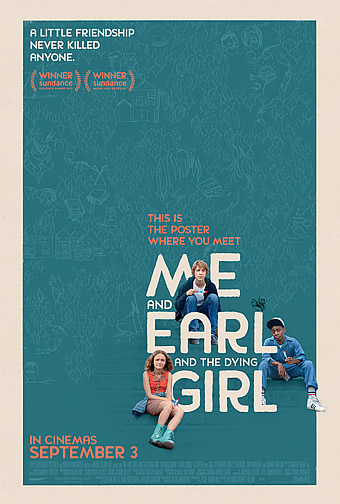
Movie Stills


